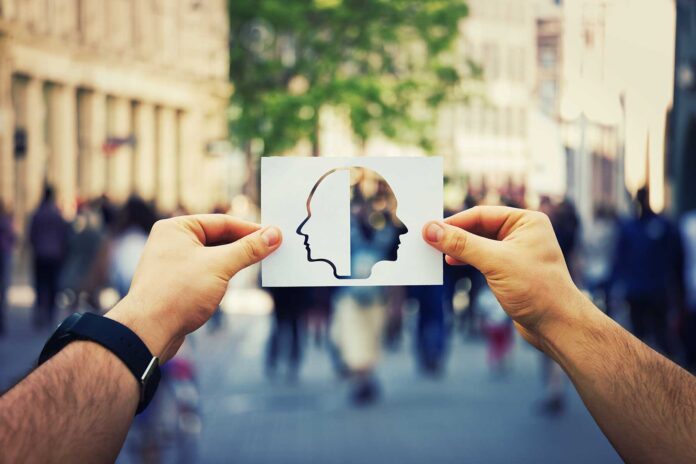Emotional disconnect refers to the difficulty or disability of a person to connect with another individual on an emotional level.
To some, the emotional disconnect can be voluntary. This means it’s their personal choice to avoid unwanted drama, stress, or anxiety by being emotionally connected with certain individuals. However, for others, it’s beyond their control. The emotional disconnect they go through springs from a series of events in their life whereby now they’re starting to feel cold, stiff, or that they’re protective of their emotions.
To some extent, emotional disconnection can be beneficial, if you know for certain you can gain peace of mind by minding your own business. But more often than not, being emotionally disconnected is hurtful to one’s life. It all begins when you can no longer control it and it’s hurting your overall emotional well-being and relationships with loved ones.
This article will cover some of the common signs and solutions of emotional disconnection.
Signs Of Emotional Disconnect
First off, how can you tell you or your loved one is potentially going through emotional disconnect? The following information as well as other resources online like 28bysamwood.com gives you a clear viewpoint.
1. Extreme Personality Change

If you happen to notice someone or yourself starting to go through a sudden personality change, that’s one sign of emotional disconnect. For instance, you used to be a very sweet, caring, and fun-loving individual. Yet you’ve turned into a dry, numb, or seemingly emotionless person – an earmark of what extreme personality change is.
Yes, it’s normal for individuals to go through some changes with their personalities over time. But, once it’s extreme and you feel nonchalant in situations that usually call for a reaction, that’s when you can be certain you’re also developing emotional disconnection.
Extreme personality change as a symptom of emotional disconnection may also stem from other underlying mental conditions like:
- Anxiety;
- Unstable mood;
- Depression;
- Unreal sensations or hallucinations; and
- Detachment.
2. Difficulty Maintaining Personal Relationships
It’s said that no person is an island and you certainly can’t go through life without developing personal relationships with those around you. Once you feel you’re struggling with creating and maintaining good interpersonal relationships with others, that’s another sign you may be suffering from emotional disconnect. If left unchecked, unfortunately, you may even hurt your relationship with people who are healthy and good for you – mentally.
3. Feeling Demotivated

Once in a while, it’s normal to feel your motivation dwindling. Perhaps you’ve gone through a lot of stress at work lately. Or, there are challenges in your personal life. During normal circumstances, this demotivation can be turned around and changed for the better after de-stressing and relaxing. If this doesn’t hold true anymore, however, then it’s a telling and convincing sign of emotional disconnect.
There are many reasons why you might feel demotivated. These include:
- Boredom;
- Issues in your work and personal life like grief, insults from co-workers, and many more;
- Feeling under-appreciated in your relationship or at work;
- Unmanageable expectations; and
- Lack of career and personal life progression.
Solutions For Emotional Disconnect
Once you’ve discovered you have emotional disconnect, don’t let it become worse. There are many solutions you can try to possibly fix emotional disconnect or emotional detachment. Listed below are just some of those solutions.
1. Recognize The Signs

You can never fix your emotional disconnection if you don’t recognize its signs. It’s now up to you to make your assessment as to whether or not you or your loved one exhibits some of the tell-tale signs discussed above. Don’t deny the possibility of you having them. Being able to acknowledge concerns can help you move forward with the next important step of seeking help from professionals.
2. Seek Professional Help
Seeking professional help for mental and emotional difficulties is no longer a taboo as it may have been in the past. In fact, today, it’s highly encouraged and isn’t an indication of failure. It’s said to be the beginning of healing and improving your overall emotional condition and mindset.
Help is available and within the reach of many who are looking for qualified counselors or therapists. And you can trust in them to maintain doctor-patient privacy if you aren’t comfortable with other individuals finding out that you’re seeking help for your mental and emotional disconnect.
3. Take Care Of Yourself

Taking care of yourself isn’t selfish. In fact, perhaps one of the reasons why you may feel so emotionally disconnected from someone else is because you aren’t able to take good care of yourself anymore. A lot of people are suffering silently because of their inability to put their welfare first in most instances which leads to an eventual feeling of emotional disconnect.
Take it easy on yourself, remember it’s not your fault you feel that way. It only becomes your fault once you don’t strive to do anything about it. Taking care of yourself can include practices like:
- Practicing meditation and other relaxation techniques;
- Enjoying some ‘me time’ to allow you to reconnect with your emotional side; and
- Leading a healthy lifestyle.
When was the last time you took good care of yourself? Self-care doesn’t have to be expensive. It’s as simple as finally letting go of all those binge junk food-eating sessions and eating clean and healthy food items. Or, taking the time to exercise. Whatever it is that makes you happy or that makes you feel relaxed, go ahead and do it. This source also gives you some ideas on how to practice self-care at work.
Conclusion
Whatever the reason for your emotional disconnect is immaterial. What’s most important is what you’ll actually do about it so you can correct it to conquer and move on from it. The earlier you actually address feelings of emotional disconnect, the better.
By doing so, you can avoid your predicament from turning into something more serious and more difficult to handle. The good relationships you have in your life shouldn’t suffer too as a result of your emotional disconnect. Seek help when available, learn more about your emotional disconnect, and slowly take steps to move on away from it.






